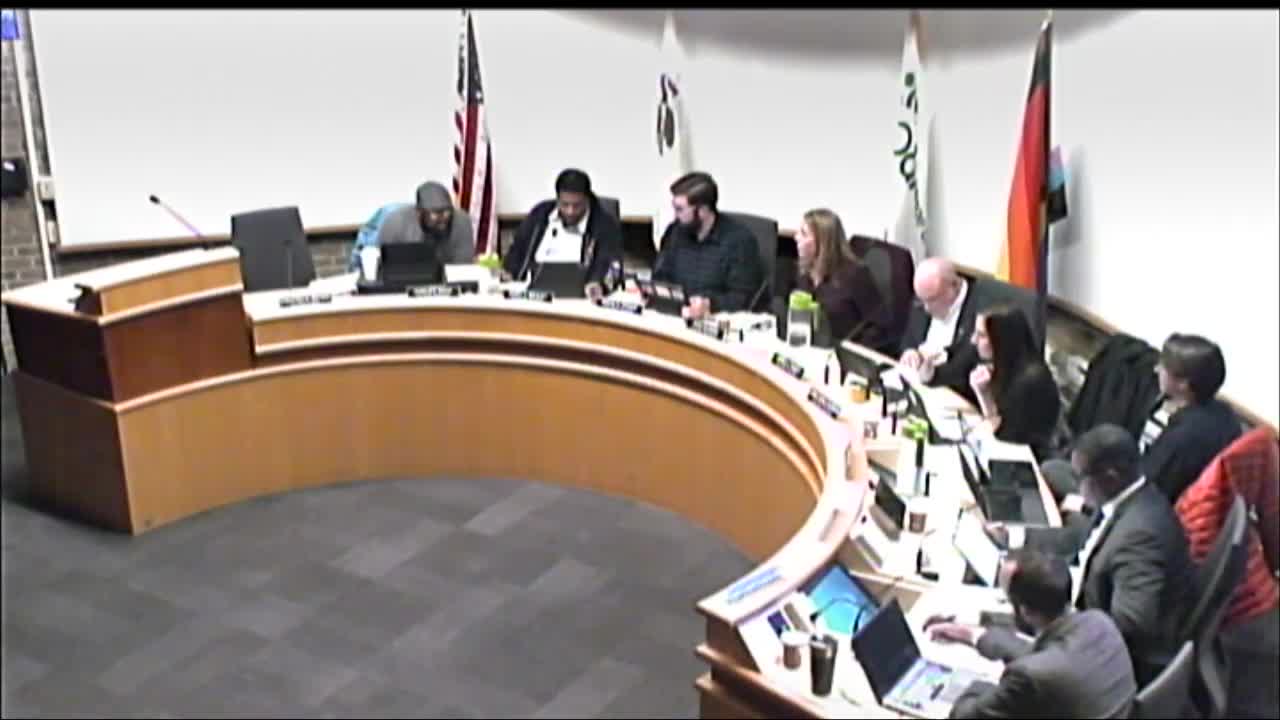Board directs finance committee to identify funding for three-year "living room" mental health pilot
Get AI-powered insights, summaries, and transcripts
Subscribe
Summary
Trustees voted to forward a request for $150,000 (annual, part of a three-year pilot totaling $450,000) to the Finance Committee for funding consideration to support a NAMI/Community Mental Health Board "living room" crisis program pilot in Oak Park.
The Village Board voted Oct. 21 to refer a funding request for a proposed three-year "living room" mental-health crisis pilot to the Finance Committee for identification of funding sources. The request presented to the board was $150,000 per year (for three years) to support a NAMI Metro Suburban-run living room pilot intended as a community alternative to an emergency-department mental-health visit.
Community Mental Health Board Executive Director Cheryl Potts and NAMI Metro Suburban Executive Director Shelly Lustrup described the living room model as a peer-staffed, community-based space where people experiencing worsening mental-health symptoms can receive recovery-oriented support and linkage to services. Staff and presenters said a pilot would gather local data about demand and outcomes and, if successful, could position Oak Park to apply for Illinois state living-room funding for a longer-term program.
Key details presented to trustees:
- Pilot structure: Proposed 3-year pilot with initial hours 12 p.m.–8 p.m., seven days a week, 365 days a year (based on usage patterns at other NAMI living rooms). The proposed site discussed was a storefront at 816 Harrison, adjacent to NAMI's existing drop-in center and near the Blue Line station and Rush Oak Park Hospital. - Staffing and budget: The presented budget covers three full-time staff, supervisory time, program supplies, occupancy and miscellaneous costs. Capital improvements for the space were reported as already approved by the Community Mental Health Board (approximately $85,000). The local Community Mental Health Board and NAMI are pursuing additional funding commitments and have secured or pursued philanthropy and other partners. - Evaluation metrics: Organizers will track number of visitors, zip codes of origin, referrals, de-escalation (subjective distress scales), hospitalization deflection, 30-day follow up outcomes, and linkage to clinical and social services.
Trustees asked about timing, language access, partnerships, governance and whether the township or other taxing bodies were contributing. Presenters said the Community Mental Health Board has committed capital funding; the township has indicated a smaller contribution in the packet materials; NAMI already runs living rooms elsewhere and can staff a pilot quickly once funding and space are finalized. Trustees voiced support for the program but asked staff and the applicants to identify sustainable funding beyond the three-year pilot and noted the village would need to determine how to fund its share in the municipal budget.
Village Manager Jackson told the board staff would forward the matter to the Finance Committee to identify a funding source; Trustee Enya moved the grant and Trustee Levin Jacobson seconded. A friendly amendment to refer the $150,000 funding request to the Finance Committee for review passed on roll call: Trustee Enya — Yes; Trustee Levin Jacobson — Yes; Trustee Eder — Yes; Trustee Straw — Yes; Trustee Taglia — No; Trustee Wesley — Yes; President Vicki Skamman — Yes.
Organizers emphasized that the pilot is intended to complement existing crisis services (988, Thrive Counseling Center mobile crisis team, hospital emergency departments and the village ECHO team) rather than supplant them. If the pilot demonstrates local demand and effectiveness, organizers plan to apply to the State of Illinois for ongoing operational support.
Speakers at the meeting included Cheryl Potts (Community Mental Health Board) and Shelly Lustrup (NAMI Metro Suburban); trustees who spoke in favor noted the project aligns with the Village's community-health priorities and the Village's community health strategic plan.
Clarifying details in the presentation noted the Community Mental Health Board had already approved capital costs for the site and that NAMI operates similar 24/7 models in other municipalities; the board did not appropriate funds tonight but directed staff to pursue a funding plan at the Finance Committee level.
